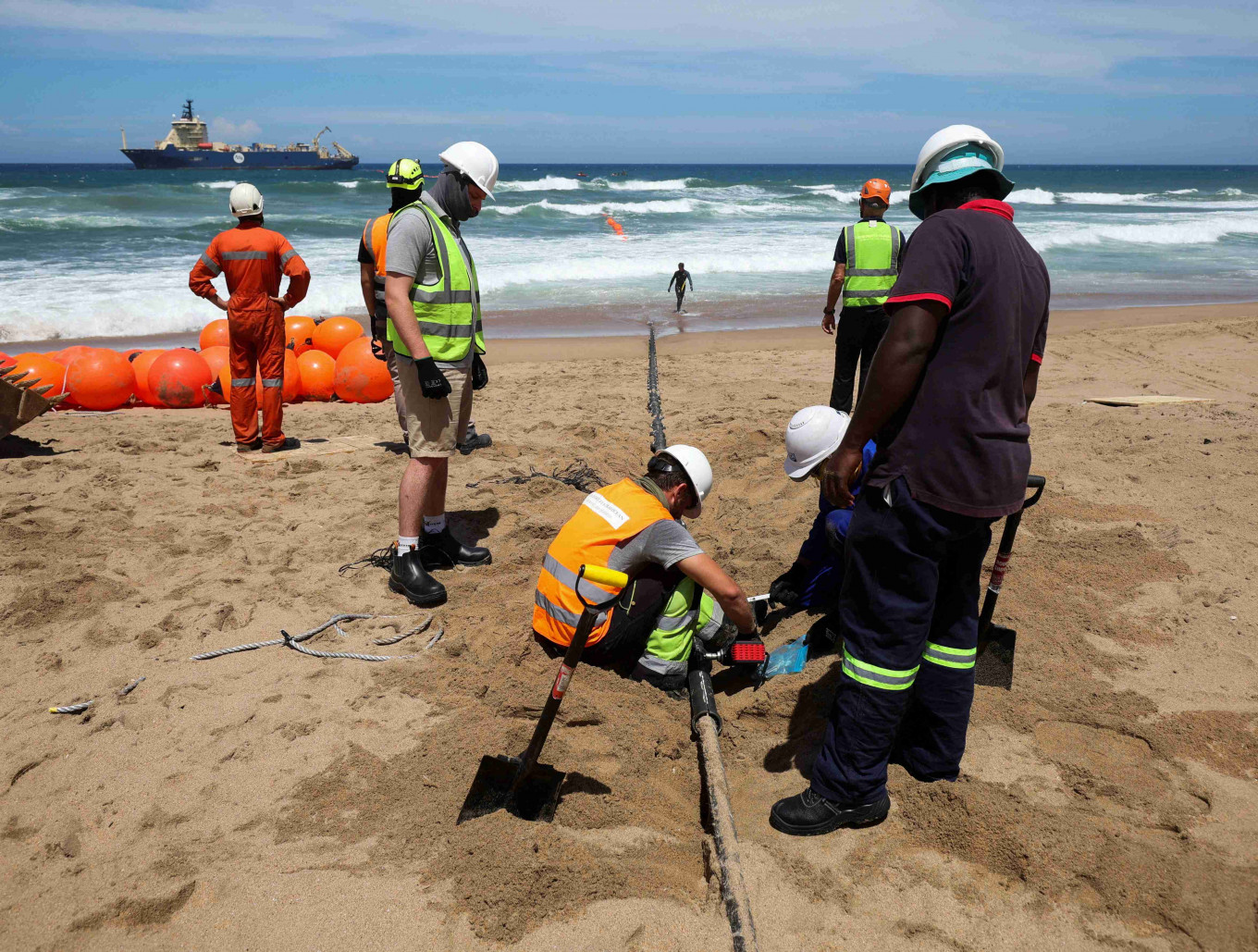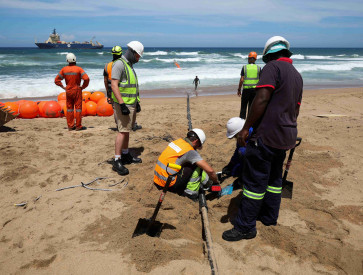Popular Reads
Top Results
Can't find what you're looking for?
View all search resultsPopular Reads
Top Results
Can't find what you're looking for?
View all search resultsNavigating geopolitical tensions: Indonesia's opportunity to boost digital economy
Subsea cables have led to a 5.4 percent increase in Indonesia’s gross domestic product (GDP) per capita between 2012 and 2017.
Change text size
Gift Premium Articles
to Anyone
I
ndonesia’s digital economy could benefit from the growing United States-China tech war as the ongoing conflicts prompted many subsea internet cable owners to avoid the contested waters and seek more viable locations to power the global internet.
Subsea cables, the key backbone of internet infrastructure carrying the world's data, have increasingly become central to the US-China tech war.
Recent reports from Reuters found the US government intervening in six private subsea internet cables, including by forcing the rerouting or abandonment of cables from linking US and Chinese territories directly for security reasons.
Meanwhile, China has recently begun to impede subsea cable projects to lay and maintain subsea internet cables in South China Sea, according to a report from the Financial Times, including requiring permits for work outside the country’s internationally recognized waters in a move aimed at establishing control in the strategic waterway.
These issues have led international investors to look to other locations. Indonesia’s geographical position, which is between Asia and Australia and between the Indian and Pacific Oceans, coupled with its position as Southeast Asia’s largest digital economy, have positioned it favorably as a viable option for companies looking to deploy internet subsea cables whilst mitigating geopolitical risks in the South China Sea.
Despite being the largest digital economy in the Southeast Asia region, Indonesia’s overall internet connectivity only ranks 66 globally, below other Southeast Asian countries namely Singapore, Malaysia, Thailand and Vietnam, according to the 2021 Economist Intelligence Unit’s Inclusive Internet Index.
Several strategic investments in international subsea cables have been announced over the past two years in Indonesia, with several internet cables looking to connect Indonesia directly to the US, Japan and Australia, among other countries. Not only that these investments would increase internet connectivity for hundreds of millions of digital customers and small and medium enterprises (SMEs), these would also support Indonesia’s desire to become the digital hub of the Asia-Pacific region and jack up economic growth.



















